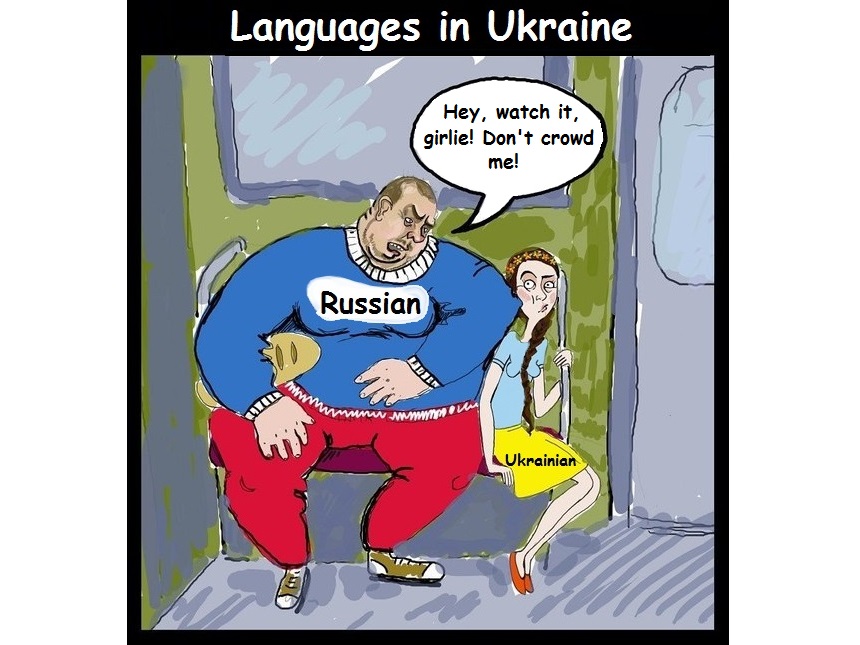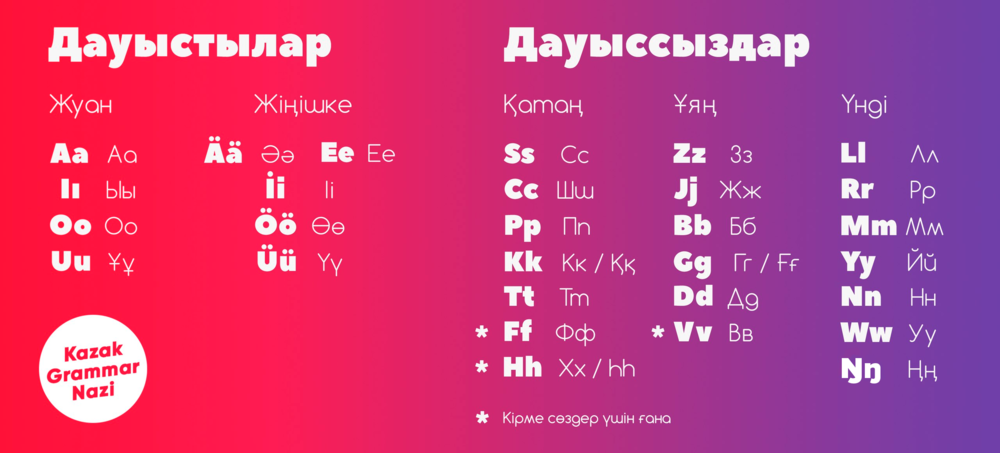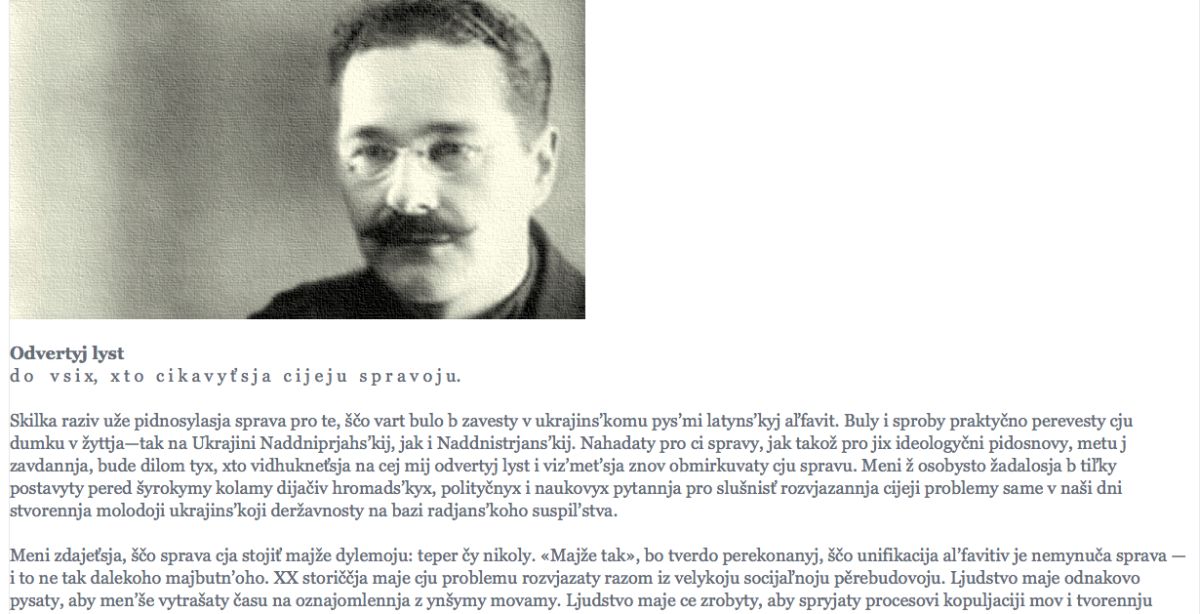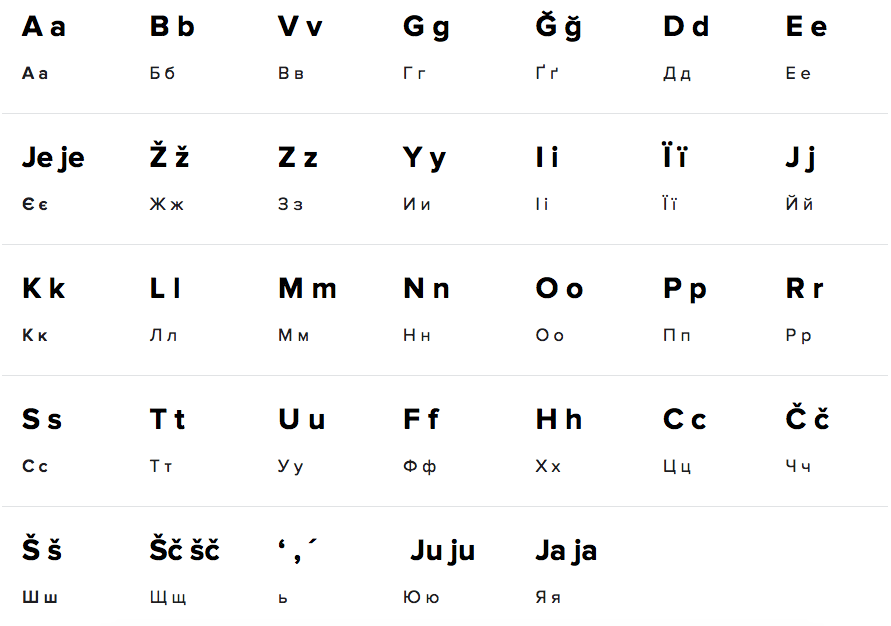The Kremlin isn’t pleased that the number of Ukrainians who use Russian is declining, but it if far more concerned with something else: the possibility even likelihood that “Russian too obviously is ceasing to be the language of the majority,” according to Kyiv commentator Kateryna Shchetkina.
That reflects its understanding of the way it can use the language issue against Ukraine not only now when Moscow’s actions have alienated many Ukrainians from all things Russian but in the future after the war is over and Moscow will again be better positioned to use its “soft power.”
Moscow’s position on language and Russians in Ukraine is something many Ukrainians do not fully understand, but to the extent they do, Shchetkina says, Ukrainians will see why changing their alphabet from the Cyrillic to the Latin script could ensure Ukraine will pass “the Lagrange limit” between Russia and Europe and become fully part of the latter.
Speaking at a recent Livadia conference, Russia’s education minister “expressed concern not so much about ‘the threat to the Russian language’ [in Ukraine] as to the sad fate of the Cyrillic alphabet from which one after another the former republics of the USSR have departed,” the Kyiv commentator says.
The minister’s words reflect a longer view than many are accustomed to adopting, she continues. “The problem of the reduction in the popularity of Russian is of course for them unpleasant, but in principle, it can be reversed. To love or not to love Russian culture, to read or not read Tolstoy is a political question.”
At present, Russia in Ukraine is “‘unpopular,’” Shchetkina points out. “But tomorrow, possibly, the situation will change.” And then Moscow will be able to recover its influence in Ukraine through the use of its numerous cultural channels. “Sometime the war will end,” and the larger country will seek to restore its dominance via other means.
Indeed, she says, “the return of Russian to the broad cultural spaces of the post-Soviet countries is completely possible: it is a question of time and a change of the political conjuncture.”
But until that happens, she says, “what is really important now in the language policy of Russia is not to permit ‘the Russian language population’ to be transformed into ‘a Russian diaspora.’ For Russia, at least with regards to Ukraine, a diaspora is a not terribly reliable level of pressure.”
Moscow fully understands this and that is why it spend so much time talking about “‘the Russian-language population’” of Ukraine. It “has never considered this population as a minority, let alone a diaspora.” Instead, the Russian regime does everything it can to blur the limits between Russian speakers and ethnicity.
“By defending ‘the Russian-language population,’” she says, Moscow pursues a variety of “hybrid goals,” not least of which is to suggest that Russia is intervening in Ukraine in support of what it views as “‘an oppressed majority,’” a conception that lends a certain patina of legitimacy to what Moscow is doing.
Consequently, Shchetkina says, “the problem of the Russian language in Ukraine from the point of view of Russia’s ruling clique is not the reduction in its use but that things be arranged so that Russian does not too obviously cease to be the language of the majority.” Thus, Moscow’s concern is about image rather than reality.
That is why Russian officials today are more concerned about maintaining or restoring the Cyrillic alphabet in the post-Soviet states than they are about the number of Russian speakers. The latter may go up or down, but the shift to Latin script marks a final break with a Moscow-centric world.
“From a political point of view, a shift from Cyrillic to the Latin script is an excellent move,” Shchetkina says. “It guarantees a rapid and radical break with Russia’s information space and its culture as a whole.” That is because “’the linguistic commonality’” of Ukrainian with Polish and Czech “is no less than with Russian.”
“But [Ukrainians today] read primarily Russian resources and not Polish ones. A transition to the Latin script would mean that already the next generation, raised on the Latin script would find it easier to read books, news, and social networks easier in Polish or even in English than in Russian.”
According to Shchetkina, “from the point of view of ‘a civilizational project,’ this shift would mark Ukraine’s escape from the orbit of the Russian empire and its move into the embrace of the Pax roman, the civilization formed by Latin.”
Obviously, there are and will be many arguments against such a move – including historical ones. But there is an overwhelming political one in favor: “we either will take radical measure [like this] or we will remain forever in ‘a united cultural space’ secured by ‘linguistic commonality.’”
Indeed, the Kyiv commentator says, “the alphabet can play here a key role, significantly more than the presence and number of ‘the Russian-language population.’” Ukrainian and Russian are too similar if they use the same alphabet to ensure that Ukrainian and thus Ukraine will have an independent future.
But if Ukraine shifts to Latin, that future will be ensured, not only because Ukraine will look westward rather than eastward but also because the Russians who remain in Ukraine will become a real diaspora rather than “‘the oppressed majority’” Moscow imagines them to be – and that will make better relations between Ukrainians and Russians there possible as well.
Related:
- Russian language use in post-Soviet space declining precipitously
- Language policy in Ukraine and the experience of Finland and Israel
- Would shift to Latin script liberate Ukrainian or destroy it?
- Ukraine should shift from Cyrillic to Latin script, former Verkhovna Rada deputy says
- Moscow reacts to Kazakhstan and Kyrgyzstan switching from Cyrillic with hysterics
- “Putin said to orchestrate Trump’s impeachment” and other neglected Russian stories
- A short guide to the linguicide of the Ukrainian language | Infographics
- Russian-speakers having problems with Ukrainian language more myth than reality, poll reveals





